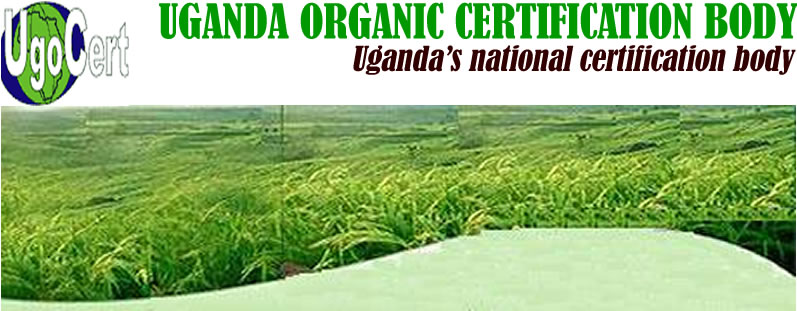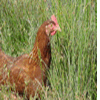Introduction: The Growing Demand for Organic Agricultural Products
The demand for organic agricultural products has been steadily increasing in recent years. As consumers become more health-conscious and environmentally aware, they are seeking out food that is grown without the use of synthetic pesticides, fertilizers, and genetically modified organisms (GMOs). This growing demand for organic products presents a significant opportunity for farmers and producers to tap into a lucrative market.
Organic agriculture focuses on sustainable farming practices that promote biodiversity, soil health, and natural resource conservation. It emphasizes the use of natural fertilizers, crop rotation, and integrated pest management techniques to maintain the ecological balance of farmland. By avoiding chemical inputs and GMOs, organic farmers aim to provide consumers with food that is free from harmful residues and genetically altered ingredients.
Furthermore, the demand for organic agricultural products is not limited to fresh produce alone. It extends to a wide range of food items such as dairy products, meat, poultry, eggs, grains, pulses, spices, and even processed foods. This presents an opportunity for farmers across various sectors of agriculture to transition towards organic production methods.
The Importance of Soil Health and Nutrient Management
Maintaining healthy soil and effective nutrient management are essential components of sustainable agriculture. The health of our soils directly impacts crop yield and overall agricultural productivity. As the world’s population continues to grow, it is crucial to prioritize the preservation and enhancement of soil health for long-term food security.
Soil health refers to the physical, chemical, and biological attributes that contribute to its overall quality and fertility. A well-balanced ecosystem within the soil supports beneficial organisms such as earthworms, bacteria, fungi, and other microorganisms that play vital roles in nutrient cycling and organic matter decomposition.
By focusing on soil health and nutrient management practices, farmers can improve crop yields while reducing reliance on synthetic fertilizers and pesticides. Healthy soils with ample organic matter content have increased water-holding capacity, improved drainage capabilities, enhanced root development, and increased resistance to erosion.
Pest and Disease Control in Organic Farming Practices
Pest and disease control are essential aspects of organic farming practices. Organic farmers prioritize the use of natural methods and techniques to manage pests and diseases without relying on synthetic chemicals. By implementing effective pest and disease control strategies, organic farmers can protect their crops while maintaining the integrity of their farming practices.
One of the key principles in organic farming is prevention. Farmers focus on creating a healthy and balanced ecosystem that naturally discourages pests and diseases. This involves promoting biodiversity, enhancing soil fertility, and practicing crop rotation to disrupt pest life cycles.
In addition to prevention and IPM, organic farmers also utilize beneficial insects as a form of biological control. Ladybugs, lacewings, hoverflies, and parasitic wasps are examples of beneficial insects that feed on pests like aphids or caterpillars. By attracting these helpful insects through companion planting or providing suitable habitats, farmers can reduce pest populations naturally.
The Role of Crop Selection and Plant Breeding Techniques in Maximizing Yield
In the ever-growing demand for food production to sustain our growing population, the role of crop selection and plant breeding techniques cannot be underestimated. Maximizing yield is crucial for agricultural productivity and ensuring food security worldwide. By carefully selecting crops and employing innovative breeding techniques, farmers can enhance genetic diversity and unlock the full potential of their harvests.
Crop selection plays a pivotal role in determining the success of agricultural endeavors. Farmers must consider various factors such as climate conditions, soil quality, market demand, and disease resistance when choosing which crops to cultivate. By selecting suitable varieties that are well-adapted to local conditions, farmers can optimize their yields while minimizing risks associated with unfavorable environmental factors.
In conclusion, crop selection and plant breeding techniques play a vital role in maximizing yield and ensuring sustainable agricultural practices. By carefully selecting suitable crops based on local conditions and employing innovative breeding methods to enhance genetic diversity within species, farmers can meet the increasing global demand for food while minimizing environmental impacts. Embracing these practices will pave the way for a more resilient and productive future in agriculture.
- Coque téléphone Samsung J3 – Protégez votre téléphone avec styleCoque téléphone Samsung J3 – Protégez votre téléphone avec style Coque téléphone Samsung J3 – Protégez votre téléphone avec style Choisir la bonne coque pour votre téléphone Samsung J3 Lorsque vous possédez un téléphone Samsung J3, il est important de le protéger contre les rayures, les chocs et les chutes. Une des meilleures façons de… Read more: Coque téléphone Samsung J3 – Protégez votre téléphone avec style
- The Rise of Coffee Vape Juice: A Blend of Two AddictionsThe Rise of Coffee Vape Juice: A Blend of Two Addictions The Rise of Coffee Vape Juice: A Blend of Two Addictions The Growing Popularity of Coffee Vape Juice Coffee and vaping are two trends that have taken the world by storm in recent years. Both have their own loyal fan base and have become… Read more: The Rise of Coffee Vape Juice: A Blend of Two Addictions
- The Rise of Burberry Replica Bags: A Fashion Trend or a Cause for Concern?The Rise of Burberry Replica Bags: A Fashion Trend or a Cause for Concern? The Rise of Burberry Replica Bags: A Fashion Trend or a Cause for Concern? The Iconic Burberry Brand Burberry is a British luxury fashion house known for its iconic tartan pattern and trench coats. Founded in 1856 by Thomas Burberry, the… Read more: The Rise of Burberry Replica Bags: A Fashion Trend or a Cause for Concern?
- The Importance of Maintaining a Healthy and Balanced Ecosystem: How it Benefits Us and the EnvironmentIntroduction: Understanding the Significance of a Healthy and Balanced Ecosystem Imagine a world where nature thrives in perfect harmony, where every living organism plays a vital role in maintaining the delicate balance of our planet. This is the power of a healthy ecosystem. Ecosystems are not only beautiful and awe-inspiring, but they also serve as… Read more: The Importance of Maintaining a Healthy and Balanced Ecosystem: How it Benefits Us and the Environment
- The Importance of Embracing Environmentally Sustainable Practices for a Greener Futureenvironmentally sustainable practices, greener future, climate change, renewable energy, reduce carbon footprint, eco-friendly alternatives. In today’s world, the importance of embracing environmentally sustainable practices cannot be overstated. With the growing concern over climate change and its impact on our planet, it is crucial that we take proactive steps towards creating a greener future. One of… Read more: The Importance of Embracing Environmentally Sustainable Practices for a Greener Future
- Learn How to Check for Soil Health Issues and Improve Your Garden’s ProductivityIntroduction: The Importance of Soil Health and Its Impact on Plant Growth Ensuring soil health is crucial for optimal plant growth and garden productivity. The quality of soil directly impacts the nutrients available to plants, their ability to absorb water, and overall resilience against pests and diseases. By prioritizing soil health, gardeners can create thriving… Read more: Learn How to Check for Soil Health Issues and Improve Your Garden’s Productivity
- The Latest Developments Elsewhere: Exploring the Exciting Advancements in Various FieldsThe world we live in is constantly evolving and progressing at an unprecedented pace. In every corner of the globe, remarkable advancements are being made across a multitude of fields. From science and technology to medicine and beyond, the latest developments are shaping the way we live, work, and interact with the world around us.… Read more: The Latest Developments Elsewhere: Exploring the Exciting Advancements in Various Fields
- The Importance of Soil Health and Nutrient Management: Enhancing Crop Productivity and Sustainable AgricultureIntroduction: Understanding the Vital Role of Soil Health in Agriculture In today’s rapidly changing world, the importance of soil health and sustainable agriculture practices cannot be overstated. As farmers and agricultural professionals strive to maximize crop productivity while minimizing environmental impact, the management of soil nutrients and fertility plays a crucial role. One key aspect… Read more: The Importance of Soil Health and Nutrient Management: Enhancing Crop Productivity and Sustainable Agriculture
- The Importance of Organic Standards: Ensuring Trustworthy and Sustainable AgricultureOrganic standards, trustworthy agriculture, sustainable agriculture, consumer trust, environmental impact, health benefits. In today’s world where consumers are becoming increasingly conscious about the food they consume and its impact on their health and the environment, organic standards play a crucial role in ensuring trustworthy and sustainable agriculture practices. These standards not only provide a framework… Read more: The Importance of Organic Standards: Ensuring Trustworthy and Sustainable Agriculture






